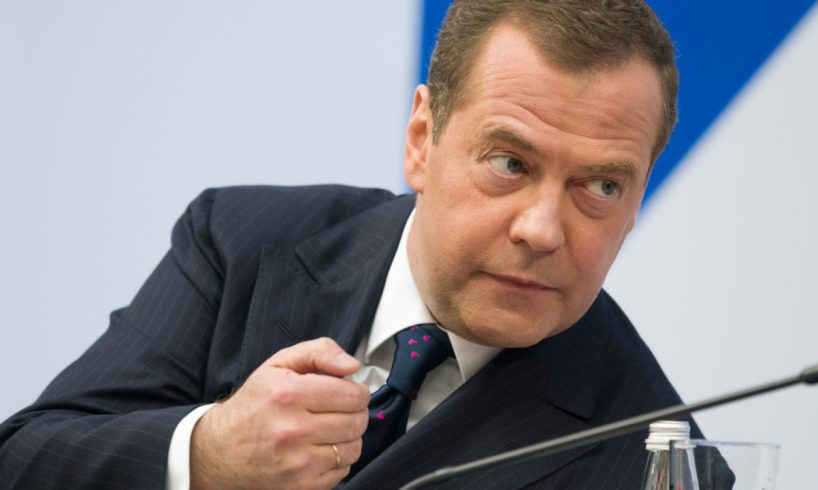
Dmitry Medvedev, former president and prime minister of Russia, has voiced his concerns over Bank of Russia’s initiative to ban most crypto operations. Prohibition could bring the opposite result, the Russian politician warned, joining a chorus of opinions against the restrictive policy.
More Officials and Organizations Reject Central Bank’s Call to Prohibit Cryptocurrency
Central Bank of Russia’s proposal to place a number of crypto-related activities outside the law has sparked a wave of reactions in Moscow. Among the critics are the Finance Ministry which put out its own regulatory concept, the State Duma where deputies are working on a new crypto law, and the government which prepared a roadmap for crypto regulation together with various departments.
The central bank’s position has its reasons, Dmitry Medvedev, who now serves as deputy chairman of the Security Council of the Russian Federation, acknowledged in an interview with Russian media. The monetary authority has cited threats to the nation’s financial stability and risks for its citizens as key factors for its hardline stance on crypto. However, quoted by Tass, Medvedev warned:
To be honest, when you try to ban something, this very often leads to the opposite result.
Other Russian officials have recently expressed more specific concerns. Any restrictions on the issuance and circulation of cryptocurrencies would halt the development of the blockchain industry and go against the country’s policy of supporting the IT sector, Minister Of Digital Development Maxut Shadayev was quoted as saying by the business daily Vedomosti. A ban would also lead to outflow of qualified specialists, he added.
The Russian Association for Electronic Communications (RAEC) has also joint the front against Bank of Russia’s push for prohibition while backing the finance ministry and the federal government. A ban would not solve existing problems with fraud and other illegal acts but, on the contrary, it will complicate control as market activity will move to the “grey” sector, the industry organization noted. In a statement quoted by the business news portal RBC, RAEC also said:
The ban on the circulation of cryptocurrencies will leave Russia on the sidelines of the development of one of the fastest growing digital markets at the moment, which will significantly slow down the innovative development of the country.
According to data compiled by RAEC’s experts, the contribution of digital markets to the Russian economy amounted to 6.7 trillion rubles (over $85 million) in 2020. The association’s preliminary estimates for 2021 suggest that the indicator has increased by 29%, to 8.6 trillion rubles (around $110 million at current exchange rates).
Meanwhile, the head of the State Duma Financial Market Committee, Anatoly Aksakov, has publicized the idea of legalizing cryptocurrencies under the Russian law “On Experimental Legal Regimes in the Field of Digital Innovations.” This would allow authorities to examine how the various elements of the crypto infrastructure function under strict government control, Aksakov elaborated during a conference devoted to crypto regulations.
Tags in this story
Aksakov, Anatoly, ban, Central Bank, Circulation, communications, Crypto, crypto assets, Cryptocurrencies, Cryptocurrency, Digital Assets, Digital Currencies, digital development ministry, dmitry medvedev, Duma, finance ministry, Medvedev, positions, prohibition, RAEC, reactions, Regulation, Regulators, Russia, russian, stance, State Duma
Do you think Russia will eventually legalize cryptocurrencies and operations with them? Share your expectations in the comments section below.
Lubomir Tassev
Image Credits: Shutterstock, Pixabay, Wiki Commons
Disclaimer: This article is for informational purposes only. It is not a direct offer or solicitation of an offer to buy or sell, or a recommendation or endorsement of any products, services, or companies. Bitcoin.com does not provide investment, tax, legal, or accounting advice. Neither the company nor the author is responsible, directly or indirectly, for any damage or loss caused or alleged to be caused by or in connection with the use of or reliance on any content, goods or services mentioned in this article.
More Popular NewsIn Case You Missed It
















